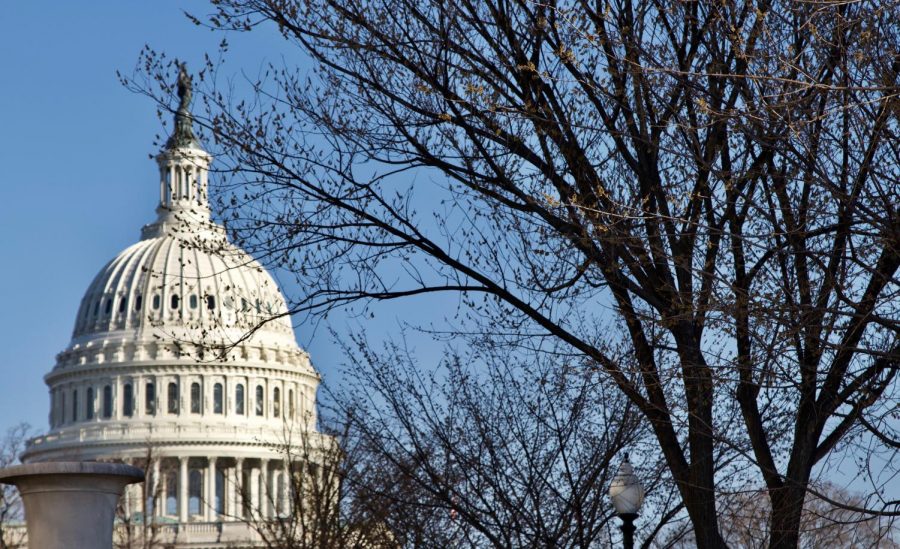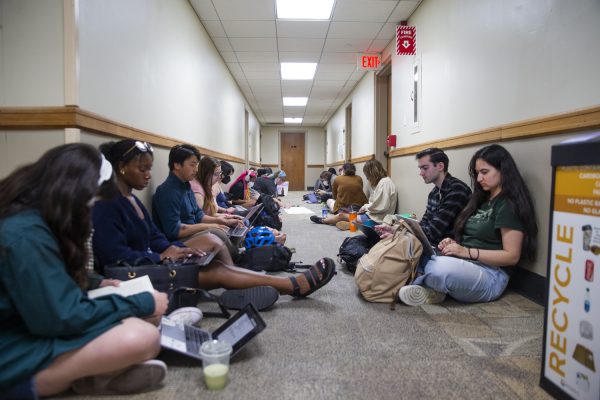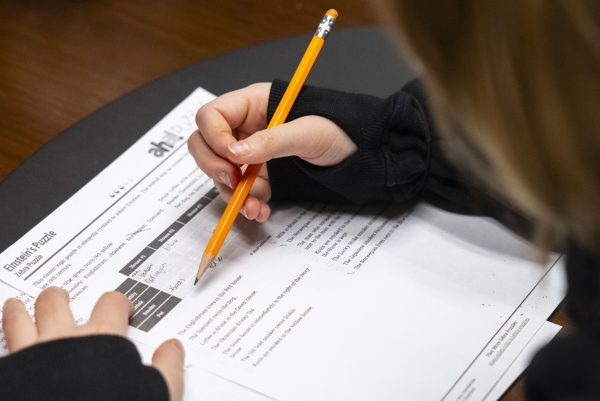US House education committee to markup Democratic proposal to reauthorize Higher Education Act
The U.S. House will markup a Democratic proposal to rewrite the Higher Education Act, which has gone more than a decade without reauthorization.
The U.S. Capitol is seen on March 13, 2018.
October 28, 2019
The U.S. House Education and Labor Committee will markup a bill today that Democrats say is aimed at removing barriers to accessing an affordable higher education, encouraging states to invest in their public institutions amid a trend of dwindling funding and skyrocketing costs.
Committee Democrats’ College Affordability Act is the latest in a string of proposals to amend the Higher Education Act, which has not been reauthorized since 2008, as lawmakers on both sides of the aisle in the U.S. House and Senate fail to see eye to eye on efforts to overhaul the federal higher-education law. The law governs federal programs including student loans, accreditation, and Title IX regulations affecting institutions’ handling of sexual assault.
The Democrats’ legislation emphasizes lowering the cost of college, improving quality, and expanding opportunity to students from underrepresented backgrounds. It places a particular emphasis on increasing funding for the federal Pell grant, a form of financial aid provided to those who demonstrate the highest financial need on the Free Application for Federal Student Aid. The bill also looks to make it easier for students who have incurred debt to finance their degree to repay their loans.
“The rising cost of college has put an affordable, quality degree out of reach for too many Americans, and as a result, a growing number of students are regrettably questioning the value of higher education,” Committee Chairman Bobby Scott, a Virginia Democrat, said in a press call with student journalists from around the U.S. “The research makes it clear that a college education remains the surest path to financial security and awarding in a rewarding career.”
Committee member Rep. Jahanah Hayes, D-Conn., told reporters during the call that given her experiences as a former educator, many of the provisions included in this bill are things she’s experienced firsthand herself or through working with students.
“This bill will open access to opportunity for so many people who seek college or secondary education as a pathway to that,” she said. “It will help for our first-generation college-educated students to navigate their pathway through college and not be burdened with debt that they can’t understand or unable to get out of.”
Scott said his committee is working with the Ways and Means Committee to find $400 billion to fund the bill without cutting other education programs.
“Taxes are always going up and down, but we would want them to find at least $400 billion to pay for this … so it would be within the revenue stream and not cutting up other education programs,” he said, adding that Congress ought to be able to fund this bill if members could fund the GOP tax-cut package, which the Congressional Budget Office projected would cost $1.9 trillion over the next 10 years.
The Republican-backed rewrite of the Higher Education Act — the Promoting Real Opportunity, Success, and Prosperity through Education Reform Act, introduced in 2017 — emphasizes streamlining student-loan programs and would eliminate the Public Service Loan Forgiveness Program.
Iowa’s Republicans in the upper chamber Chuck Grassley and Joni Ernst in March introduced bills focused on boosting transparency surrounding student loans and the cost of pursuing higher education rather than trimming the costs associated with earning a degree.
Representatives for Iowa House Democrats Abby Finkenauer and Cindy Axne did not respond to requests for comment by the time of publication.
Finkenauer has previously shared her experiences as a recent college graduate saddled with student-loan debt in an interview with The Daily Iowan, which she said has informed her perspective when considering legislation that addresses college affordability.
Axne supported passage of a fiscal 2020 House appropriations package that included funding for federal student-aid programs and would have increased the maximum Pell grant award to keep pace with inflation. Additionally, Axne voted to secure funding for more workforce development opportunities and apprenticeship programs.
Joe Hand, communications director for Rep. Dave Loebsack, D-Iowa, said in a statement that Loebsack will monitor the process as the House Education and Labor Committee marks up the bill before deciding what he thinks of the legislation.
“Congressman Loebsack is in the process of reviewing the legislation and meeting with stakeholders to discuss the implications for Iowa’s colleges and universities,” Hand said. “He is encouraged that the bill does include an increase in funding for year-round Pell grants.”















